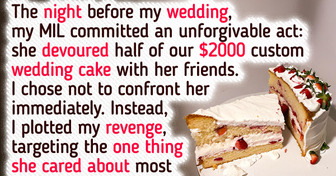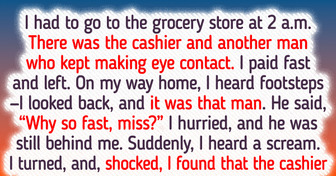26 Curious Facts Showing How Little We Know About This World

The majority of mothers of babies under the age of one (as many as 73%) put things like blankets, stuffed toys, and bumpers into the crib with the baby. A survey conducted by American Baby and Safe Kids Worldwide of around 4,500 new moms gave this result. However, this is dangerous and increases the possibility of suffocation for the baby.
Bright Side noted some of the key things that new mothers must keep in mind to ensure the safety of their newborn.
“It is just a little baby who can’t even move.” This phrase needs to be disregarded by all new moms out there as you need to be extra cautious of what you keep in your baby’s crib.
There should be absolutely no extra pillows or blankets. Why take a chance on things that might suffocate your baby? It is definitely not worth the risk.
Although many governments don’t allow the sale of toys that might be a choking hazard for children under the age of 3, there is no harm in doing a recheck by yourself. After all, it is for the safety of your own baby.
The trick is to put the toy into an empty toilet paper roll. If it fits, it has every possibility of becoming stuck in your baby’s throat if swallowed by mistake. Better not take chances!
Your little one’s nap time is not your ticket to go out of the room and leave the baby all by themselves. They are too tiny and fragile — as well as being very adorable! We don’t mean to scare you, but carelessness for even a split second can be dangerous.
Along with this, get a good baby monitor installed near your child’s crib that has good video and sound quality.
This should be done before the baby even arrives. There are many things that your baby can put into their mouth, many things that have sharp corners, and, well, many things that are breakable. Take charge before it’s too late.
The 6-month milestone makes any mother super excited as she gets the nod to introduce solids to her little one. However, keep that excitement to a limit. It is the very first time your baby will be having a taste of food. Certain foods might cause an allergy in that delicate little body. Some common allergens are milk, eggs, peanuts, tree nuts, fish, shellfish, soy, and wheat.
Thus, it is generally advised by doctors to try one ingredient at a time. Give your baby the same food for 4 to 5 days, and then try another food. This way, the baby will also start developing a taste for different kinds of food.
A bowl of hot water is all you should need. Microwaves are a big no not only because of the possible harmful effects on the food but also because the sudden change of temperature can harm your baby and leave burns in their mouth.
It is recommended that you put the milk bottles into a bowl of hot water. Also, stir the food properly before serving. For milk, put some drops on the back of your hand to make sure it is good to go.
The first rule is not to overstuff the crib. Less is more. After their first month in this world, your baby needs just as much covering as you do. If you are putting those extra sheets on and thinking they will keep your baby warm, think again.
Rule number 2 is to put your baby to sleep on their back. Always. They will find a comfortable position for themselves once they start moving. Until then (at least until they are one year old), put them to sleep on their back.
Place a note on the fridge or the cupboard, but remember that accidents can happen anytime, and you won’t have the time or mind to look for which number to dial. There is no harm getting prepped for a crucial situation. This will help save time and maintain peace too. Have the numbers of your pediatrician, hospital, poison control, and so on handy.
Some rules should prevail even when you are not with the baby like no cell phones while you’re driving — not even through handsfree.
The second important point is the car seat. Merely installing it is not sufficient. You have to make sure that it is installed properly. For instance, it is important to put the seat belt in lock mode and to use harnesses appropriately.
It is important that you stay alert about which products you use for your baby. Companies often announce recalls that you should not miss. There can be recalls for toys, baby gear, medications, and so on.
The very first days of a baby’s life are not only uncomfortable for them but for the mother as well. The first thing most mothers try to do is achieve a proper latch while breastfeeding. All you have to do is ask for help, even if you ask 100 times. But breastfeeding babies must learn how to latch before going back home.
Not to scare you, but if the baby doesn’t latch well, you can also develop severe infections. Don’t hesitate to use breast shields as a last resort.
New mothers, especially first-time moms, face sleep deprivation. The whole experience of being a mother to a little being is exhausting, and, in severe cases, it can lead to postpartum depression.
To ensure you don’t fall victim to it, a clear and simple rule is to nap when your baby naps. That way, you can try to get enough sleep to keep you going.
A lot of mothers are skeptical about bathing their child. But you have to learn the steps sooner or later. The important rule here is to keep your eyes on the baby at all times. Don’t even think about leaving them alone in the tub to take a phone call.
A baby’s skin is very sensitive and requires an appropriate water temperature to bathe in. Always do an elbow check to ensure the water won’t scald your baby’s skin. Lastly, keep a firm grip on your baby at all times while bathing.
It is said that a mother’s heart knows all. So if you have the feeling that something is not right, it might well not be. Always trust your instincts.
If you feel worried about your child’s behavior or eating habits, seek help immediately.
Motherhood is an experience in itself. Make it a joy by following the above steps. Do you have more safety tips to share? Let us know in the comments section below.











